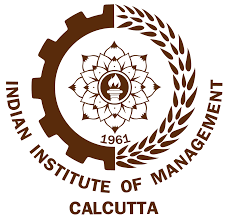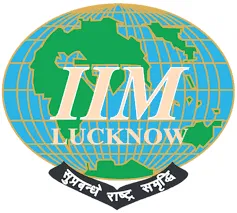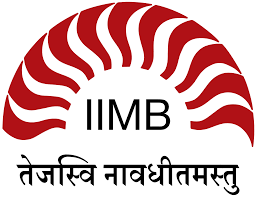
(1).
About MBA Programs
MBA is one of the most popular
post-graduate courses in India and abroad. The complete shape of an MBA is a Master
of Business Administration.
For maximum managerial-stage jobs throughout domain names and sectors, an MBA degree
is a need that's why, in recent times a big wide variety of BTech, BBA, BCom, BA, BSc, and BCA graduates choose MBA in
submit-graduation.
The
developing range of agencies has highlighted the significance of this expert
course. It teaches the necessary skills required to expand a company or lead a
successful business. MBA course also
develops leadership skills among the students. MBA admission is primarily based totally on MBA front
tests observed with the aid of using a persona evaluation check round (Group Discussion or GD, Written Ability
Test or WAT, and Personal Interview or PI).
Typically,
university college students are required to have more than 50 percent in their undergraduate degree from any circulate as a
way to pursue an MBA course. The maximum famous MBA front assessments are CAT,
CMAT, XAT,
and MAH CET amongst
others. IIM
Ahmedabad, IIM
Bangalore, IIM
Calcutta, IIM
Lucknow, FMS
Delhi, XLRI,
and ISB
are a few of the
pinnacle MBA schools in India that take admission through those tests
accompanied via way of means of character GD-PI rounds.
The MBA price usually tiers among INR 10,00,000-25,00,000 relying on the university to university, but there are positive very popular pinnacle faculties wherein the route price is a great deal decrease than INR 10,00,000 like FMS Delhi, and JBIMS Mumbai amongst others.
(2).
Why study MBA?
The
handiest solution to this query is to fast-song your career. Given the fact
that we are inhabiting a world where there is cut-throat competition in the business world and job market, one
needs to be equipped with managerial skills and leadership qualities to be able
to contribute to the organization in more than one way. If you are an expert in a field, knowing how
to manage a business will be an added advantage. An MBA degree is the key assistant in setting up own business or in
switching careers.
Listed below are a few
advantages of an MBA degree:
(3).
Eligibility Criteria
Full-time MBA eligibility standards are as
follows:
(4).
Types of MBA programs
While
the conventional full-time MBA degree is
a famous option, the MBA these days is available in all shapes and sizes.
Business faculties provide diverse styles of MBA packages suitable to unique
profiles of students.
(a).
Online MBA
The
Online
MBA is a
super-flexible, part-time MBA experience,
permitting you to maintain operation whilst reading from the consolation of
your home. Online MBA applications usually require a residential component (1-2 weeks), even though there are more
and more a hundred percent-on line MBA applications. Many online MBAs
additionally let you pay consistently with the module and plan your personal
observation time. This way intervals for online
MBA packages can vary, despite the fact that maximum takes around years to
complete.
(b).
Part-time MBA
The
part-time
MBA permits you
to mix work and study, which means you don’t pass over for your income and the
possible value of pursuing a full-time program.
Part-time MBA lessons
generally take vicinity in the evenings,
on weekends, or in bendy modular
formats, combining online mastering within-individual sessions.
(c).
Full-time MBA
The
full-time
MBA is the
original, immersive, on-campus experience, designed for early and
mid-profession college students who can be seeking to absolutely alternate
their professional paths. The two-year,
full-time MBA software is maximally famous inside the counter and
presented via way of means of the organization of elite IIMs.
The
one-year MBA is in particular famous
in Europe and Asia, supplying a
multiplied enjoyment and much fewer day trips to the workplace, despite the
fact that full-time MBAs are available in plenty of formats. INSEAD’s MBA takes simply 10 months to complete, even as London Business School gives bendy go-out factors after 15,
18, or 21 months of study.
(d).
Executive MBA
The
Executive
MBA is a
part-time MBA application centered on experienced, executive-stage specialists
with over 10 years of labor
experience. EMBA applications deliver senior leaders collectively to upskill, network, and information share, with contributors
bringing their expert tasks into the classroom.
(5).
The Impact of the COVID-19 Pandemic on MBA Programs
The COVID-19 pandemic has had a significant impact on MBA programs worldwide. Here are some key ways in which MBA programs have been affected:
| Impact | Description |
| Faculty Adaptation and Training | Faculty members had to quickly adapt to online teaching methods and learn to use digital tools and platforms effectively. Institutions provided training and support to faculty members to enhance their online teaching skills and ensure the smooth delivery of MBA programs. |
| Postponed or Cancelled Study Abroad and Exchange Programs | Study abroad and student exchange programs are popular components of MBA programs to gain international exposure. Due to travel restrictions and safety concerns, many programs had to postpone or cancel these opportunities, limiting students' ability to experience different cultures and business environments. |
| Flexibility and Blended Learning | Some MBA programs in India introduced flexible learning options and blended formats, combining online and in-person components when feasible. This allowed students to have a mix of virtual and physical learning experiences, providing more flexibility during uncertain times. |
| Mental Health and Well-being | The pandemic brought about heightened stress and challenges to students' mental health and well-being. Isolation, uncertainty, and the demands of online learning added pressure on students. MBA programs have responded by increasing mental health support services and offering resources to help students cope with the challenges. |
| Shift to Online Learning | With the closure of campuses and social distancing measures, MBA programs quickly transitioned to online learning formats. In-person classes were replaced with virtual classrooms, utilizing video conferencing platforms and online learning management systems. This shift allowed programs to continue, but it required adjustments in teaching methodologies and student engagement. |
| Disrupted Internships and Experiential Learning | Many MBA programs offer internships and experiential learning opportunities as an integral part of the curriculum. The pandemic led to disruptions in internships, as companies scaled back or canceled their programs. Students had to adapt to virtual internships or find alternative learning experiences. Experiential learning activities such as consulting projects, field trips, and case competitions were also impacted. |
| Curriculum Adaptations | MBA programs had to adapt their curriculum to address the changing business landscape and emerging challenges posed by the pandemic. Topics such as crisis management, remote work, digital transformation, and resilience became more prominent in the curriculum to equip students with relevant skills for the post-pandemic business environment. |
| Industry Engagement and Guest Lectures | In-person industry interactions, guest lectures, and networking events were affected by the pandemic. Institutions sought innovative ways to engage with industry experts and professionals virtually through webinars, online panel discussions, and virtual networking sessions. |
| Recruitment and Job Market Challenges | The job market for MBA graduates was impacted by the economic downturn caused by the pandemic. Companies reduced hiring or froze recruitment, affecting placement opportunities for MBA students. Virtual career fairs and networking events became the norm, and students had to adapt to virtual job interviews and remote onboarding processes. |
| Networking and Peer Interaction | One of the significant benefits of an MBA program is the networking opportunities and peer interactions. The pandemic limited face-to-face interactions, reducing the spontaneous networking and socializing that typically occur on campuses. Virtual networking events and online platforms replaced in-person interactions, but the experience was different. |
Conclusion
Note
Despite
the challenges, the pandemic also presented some opportunities for MBA programs. It accelerated the
adoption of digital learning technologies, enabling schools to innovate and
enhance online education. It also emphasized the importance of adaptability, resilience, and the ability to navigate uncertain and
rapidly changing business environments, which are valuable skills for MBA
graduates.
It's
important to note that the impact of the pandemic
on MBA programs varied across institutions and regions, depending on local
circumstances and responses. Programs have been continually evolving and
adapting to ensure the delivery of quality education and support to students
during these unprecedented times.
Also Read:
The
Effects of the COVID-19 Pandemic on MBA Admissions and Curriculum
The
Role of MBA Programs in Advancing Social Entrepreneurship and Impact Investing
The
Impact of Emerging Technologies on MBA Curriculum and Job Prospects
MBA
Program Scholarships and Financial Aid Updates
The
Future of Work: Preparing MBA Graduates for a Changing Job Market
Related News
View AllRelated Articles
View AllTrending Articles
View All-
NIRF Ranking 2024 for Top Management Colleges: List of Top Management Institutes in India
Aug, 21, 2024 Read More -
Top NIRF Ranking of Engineering colleges in India 2024
Aug, 20, 2024 Read More -
Top NIRF Ranking MBA Colleges in India 2024
Aug, 16, 2024 Read More -
NIRF Ranking 2024: Top Universities, Colleges, and Key Parameters Explained
Aug, 14, 2024 Read More -
SNAP 2024 Exam: Check SNAP Test 1, 2 & 3 Dates
Jul, 18, 2024 Read More -
Full-Time MBA Programs in India: Top Colleges with Low Fees and High ROI
Jul, 12, 2024 Read More -
Best Banks for MBA Education Loans in India: Top Options and Key Features
Jul, 12, 2024 Read More -
Top Government Jobs and Exams for MBA Graduates in India: Opportunities and Details 2024
Jul, 12, 2024 Read More -
CAT vs XAT for MBA in India: Key Differences and Which Exam to Choose
Jul, 12, 2024 Read More -
Top MBA Scholarships in India: Options for Government and Private Institutions
Jul, 12, 2024 Read More
Trending News
View All-
Odisha CHSE Board Time Table 2025 Out: Check Exam Dates Here
Nov, 21, 2024 Read More -
SNAP 2024 Registration Deadline Tomorrow: Register Now
Nov, 21, 2024 Read More -
CBSE 10वीं-12वीं की डेटशीट जारी: परीक्षाएं 15 फरवरी से शुरू, PDF डाउनलोड करें
Nov, 21, 2024 Read More -
IGNOU PhD Admission 2024: Registration Deadline Extended to November 25
Nov, 21, 2024 Read More -
NEET PG Counselling 2024: Round 1 Seat Allotment Released – Download PDF Here
Nov, 21, 2024 Read More -
Chhattisgarh NEET PG Counselling 2024: Merit List Released–Check Seat Allotment Date
Nov, 21, 2024 Read More -
CBSE Date Sheet 2025 Released: Check Class 10th & 12th Exam Dates
Nov, 21, 2024 Read More -
CAT 2024 Scheduled for 24 November: Exam Centers, Timing, and Instructions
Nov, 20, 2024 Read More -
CAT 2024: Final Exam Details and Guidelines for 24 November
Nov, 20, 2024 Read More -
CAT 2024 Exam Day Essentials: Don’t Forget These Documents
Nov, 20, 2024 Read More
Related Universities
View All-
Faculty of Management Studies (FMS), New Delhi
-
Indian School of Business (ISB), Hyderabad
-
Jamnalal Bajaj Institute of Management Studies, Mumbai
-
Indian Institute of Management Ahmedabad
-
Xavier School of Management, (XLRI) Jharkhand
-
Indian Institute of Management, Calcutta (IIMC)
-
Indian Institute of Management, Lucknow
-
Indian Institute Of Management–Bangalore (IIM–Bangalore)









 back
back